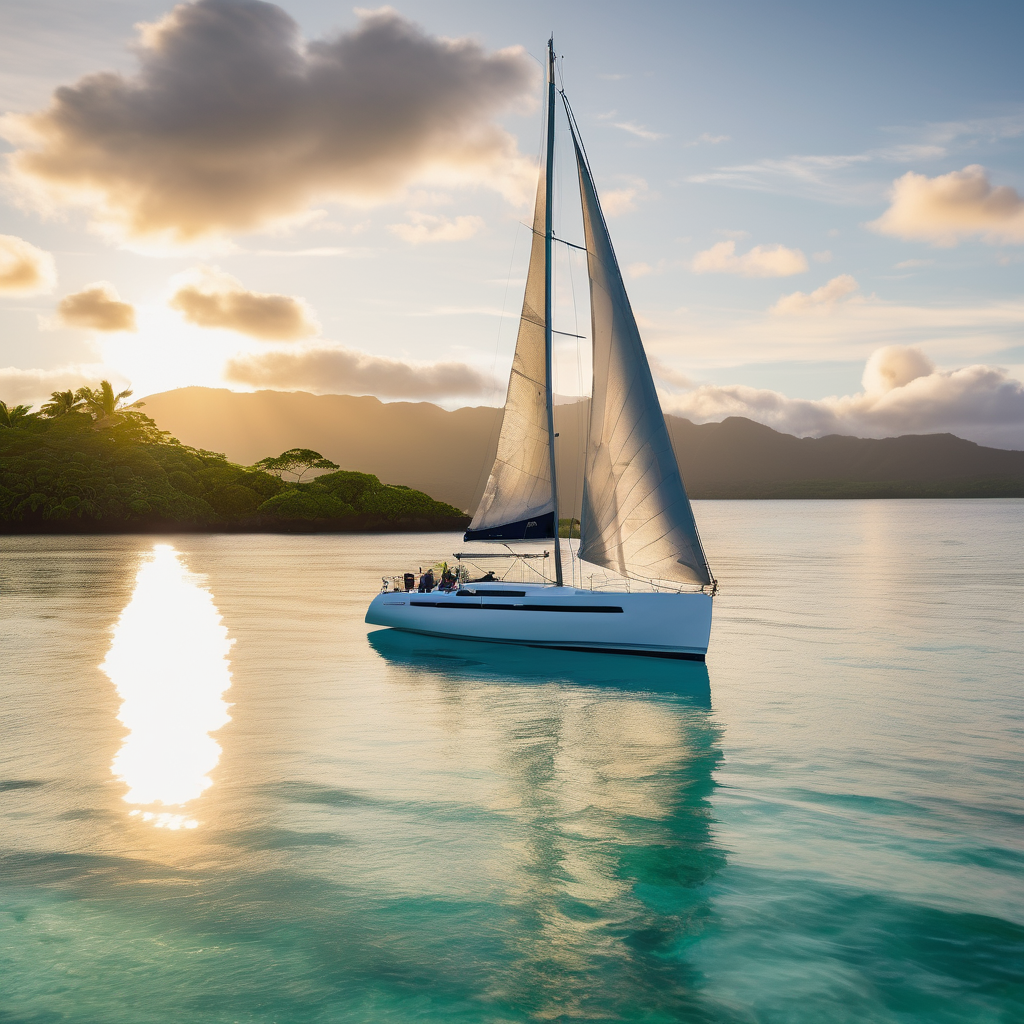Viliame “Vili” Ratulu, a prominent figure in Fijian sailing, has recently returned from the United Kingdom with a renewed vision for the future of sailing in Fiji. After successfully completing World Sailing’s 2025 Technical Coaching Course Level 2 & 3 in Weymouth, Ratulu is eager to reinvigorate Fiji’s sailing culture and enhance youth development in the sport.
The course, which took place over four weeks from September 15 to October 11, brought together twelve coaches from across the globe. Ratulu participated in the program thanks to an Olympic Solidarity Coaching Scholarship, representing the Fiji Yachting Association. His final presentation laid out a comprehensive mission focused on reconnecting Fiji with its maritime roots and fostering a robust youth development framework.
One of Ratulu’s key insights was the importance of empowering young athletes in the planning and goal-setting processes. He aims to approach coaching in a way that tailors to the individual needs of each sailor, allowing them to progress at their own pace and thrive not just as competitors but as well-rounded individuals. Ratulu asserts that coaching should extend beyond the racecourse, highlighting its role in developing life skills and character.
On the technical side, Ratulu emphasizes refining key racing skills within his team. His goals include improving sailing techniques such as starts and mark roundings and enhancing tactical awareness in varying wind conditions. To achieve this, he plans to implement a structured coaching framework that promotes athlete engagement through techniques like Plan-Teach-Brief-Do-Review.
Beyond the waters of competition, Ratulu recognizes the significant role of communication, trust, and leadership in building a cohesive team culture. He noted challenges in gaining parental confidence, especially regarding concerns related to youth issues, but remains optimistic that stronger leadership can fill the void in mentorship, instilling purpose and discipline in young people.
His vision for Fiji’s sailing future is not merely about training elite athletes; it includes a twelve- to twenty-four-month development plan aimed at rebuilding grassroots sailing. Ratulu’s ambitious targets involve qualifying two male and two female sailors in ILCA 4 for upcoming national competitions in Australia and New Zealand, and transitioning two female participants to ILCA 6 by 2027 to compete at the Pacific Games.
At the core of his journey, Ratulu expresses gratitude towards his international peers, whom he now considers family. He shares a poignant reminder: “You can’t change the wind, but you can adjust your sails,” an ethos that reflects his commitment to adaptability and determination in fostering the next generation of sailors in Fiji.
Ratulu’s experience and vision symbolize a hopeful future for Fijian sailing, bringing fresh perspectives that can ignite interest and development in the sport among youth. As he transitions from this enriching course back home, the foundations he aims to establish may very well ensure a vibrant sailing community for years to come.
